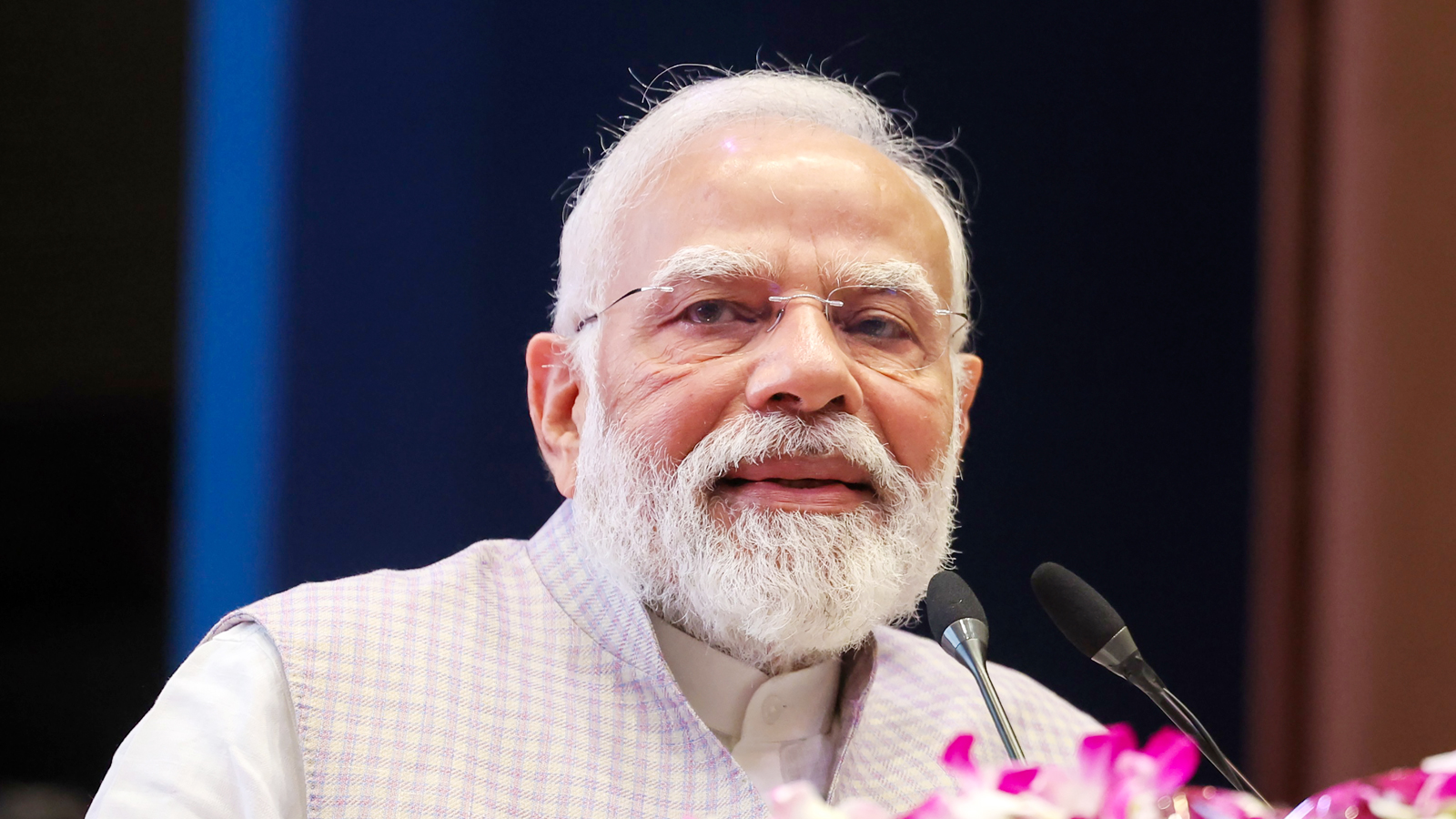Prime Minister Narendra Modi on Saturday inaugurated the National Conference on “Strengthening Legal Aid Delivery Mechanisms” at the Supreme Court of India, urging collective efforts to make justice accessible, timely, and understandable for all citizens.
Addressing the gathering, PM Modi said strengthening legal aid systems would give new strength to India’s judicial framework and enhance the Ease of Justice, complementing the government’s broader efforts toward Ease of Living and Ease of Doing Business.
“When justice is accessible to all, delivered in a timely manner, and reaches every individual regardless of their social or financial background, it truly becomes the foundation of social justice,” the Prime Minister said. He commended the work of legal services authorities across the country, noting that through Lok Adalats and pre-litigation settlements, lakhs of cases are being resolved swiftly and at low cost.
PM Modi highlighted that nearly eight lakh criminal cases have been settled under the Legal Aid Defence Counsel System in the past three years, ensuring justice for the poor and marginalized. He said that in the last decade, the government has focused on reducing red tape by removing over 40,000 unnecessary compliances and decriminalizing 3,400 legal provisions through the Jan Vishwas Act. More than 1,500 obsolete laws have also been repealed.
The Prime Minister noted that 2025 marks 30 years of the National Legal Services Authority (NALSA) and lauded its role in connecting the judiciary with the underprivileged. “Those who approach legal services authorities often lack resources, representation, and sometimes even hope. Providing them assistance is the true meaning of service,” he said.
PM Modi also launched NALSA’s Community Mediation Training Module, which he said revives India’s age-old tradition of resolving disputes through dialogue and consensus. He emphasized that the new Mediation Act continues this tradition in a modern form and would help in reducing litigation while promoting social harmony.
Speaking on the role of technology in judicial reforms, the Prime Minister said that digital tools have transformed India’s governance systems, from the spread of optical fibre and mobile connectivity to innovations like UPI. Citing the eCourts Project as an example, he said e-filing, e-summons, and virtual hearings have made justice delivery faster and more transparent. The government has allocated over ₹7,000 crore for the project’s third phase, he added.
Stressing the importance of legal awareness, PM Modi said that citizens, especially those from weaker sections, cannot access justice until they understand their rights. He urged law students to engage with rural communities to explain legal rights and procedures, and to help spread awareness through self-help groups and Panchayati Raj institutions.
The Prime Minister also underlined the need for delivering justice in local languages. He praised the Supreme Court’s initiative to translate over 80,000 judgments into 18 Indian languages and urged similar efforts across High Courts and district courts. “When people comprehend the law in their own language, it leads to better compliance and reduces litigation,” he said.
Concluding his address, PM Modi urged all stakeholders in the legal and judicial systems to envision a justice delivery framework aligned with India’s aspirations as a developed nation.
The event was attended by Chief Justice of India Justice B.R. Gavai, Union Minister Arjun Ram Meghwal, and other dignitaries.
The two-day conference, organized by NALSA, focuses on strengthening legal aid delivery mechanisms, with discussions on the Legal Aid Defence Counsel System, para-legal volunteers, Lok Adalats, panel lawyers, and institutional financial management.














